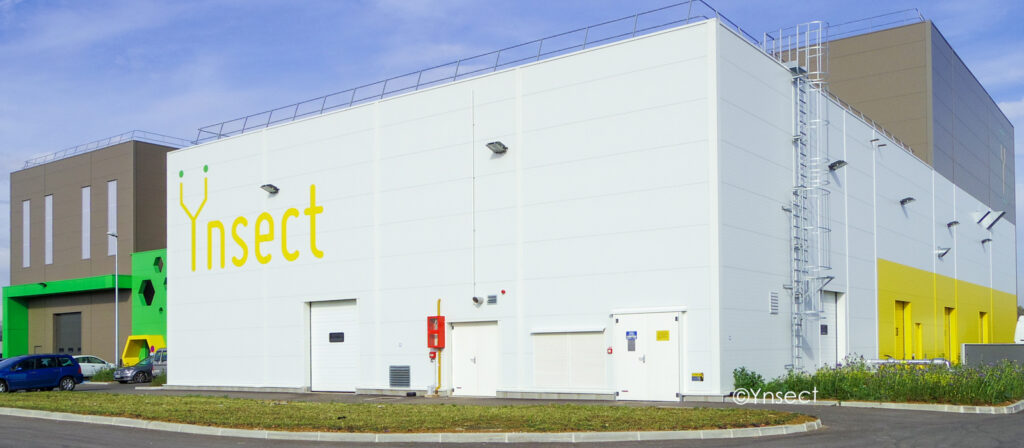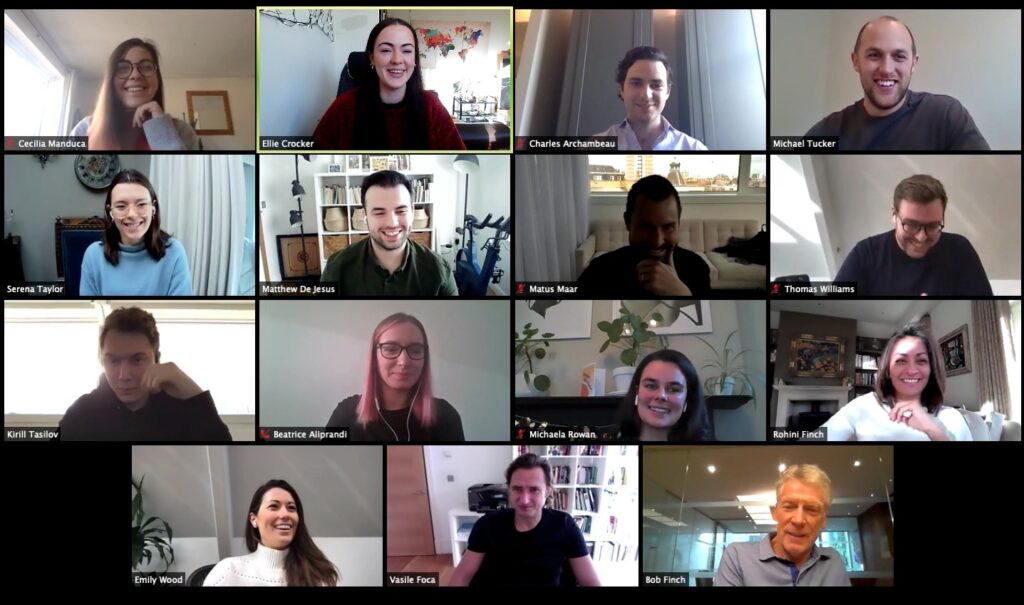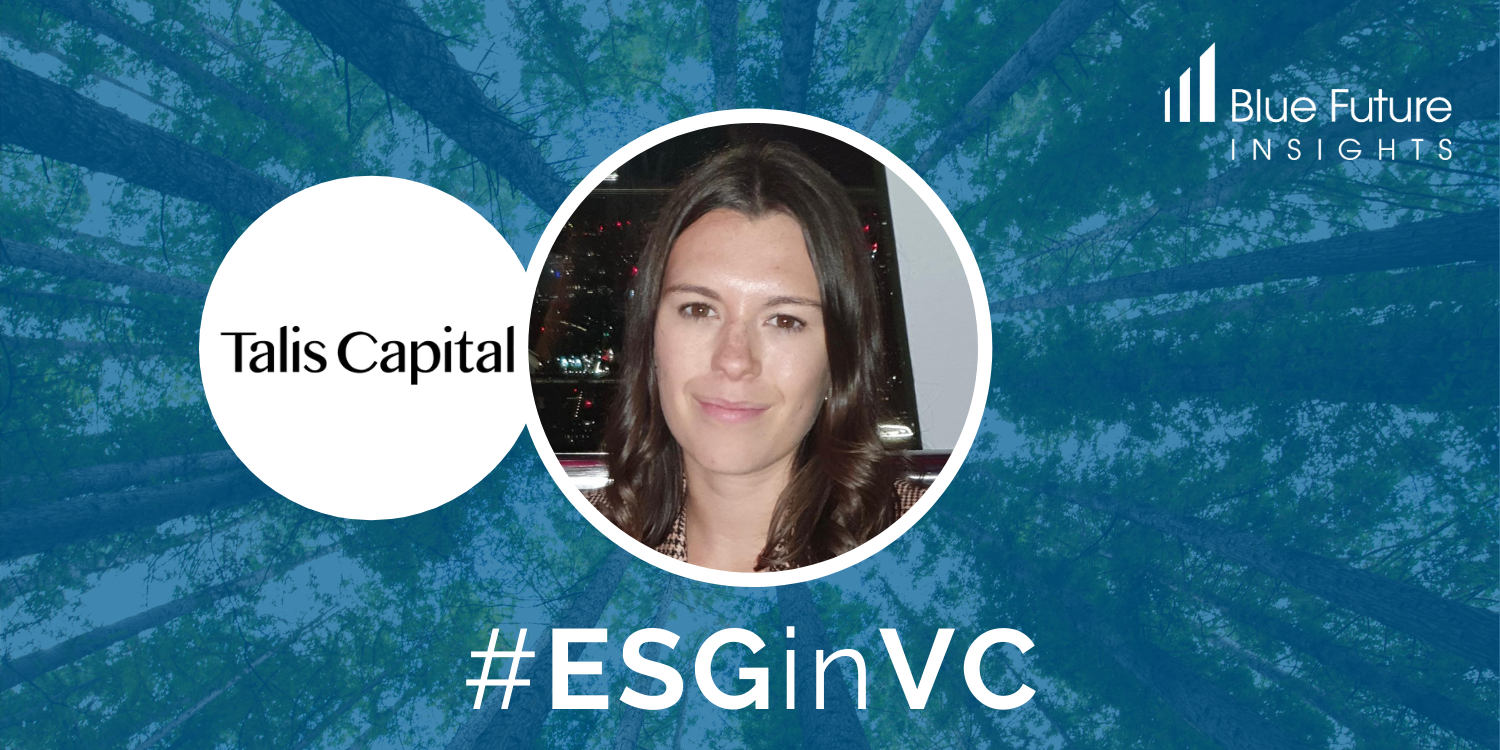#ESG Interview Series with Serena Taylor, ESG Impact Officer at Talis Capital.
Previous interviews include: Kinga Stanislawska (Experior VC, European Women in VC), Miki Yokoyama (Tech Founders), Fabian Heilemann (Earlybird, Leaders For Climate Action), Kanyi Maqubela (Kindred Ventures), David Teten (Versatile VC)
—
How do you approach ESG responsibility at Talis Capital? Do you have an ESG framework in place and what internal metrics do you monitor?
At Talis, we’re looking to support companies to not only succeed in their overall mission, but to create sustainable value and make a positive contribution to the world. While we have companies in our portfolio where components of ESG are central to their overall mission and business model – like Ynsect, which is building bug farms to create sustainable animal feed – we believe there’s room for every single young business out there to make positive impact from an ESG perspective, regardless of sector or stage.
“…we believe there’s room for every single young business out there to make positive impact from an ESG perspective…”
We use a Six Pillars Framework to identify ESG risks, which is aligned with the United Nations Sustainable Development Goals and the United Nations Global Compact. We’re a member of the ESG in VC group led by LSE and Houghton Ventures and we crafted the Six Pillars Framework in line with their recommendation to identify material issues relevant to early-stage start-ups. The Six Pillars Frameworks includes environmental impact & climate change; sustainable supply chains; diversity & inclusion; employee safety; health and wellbeing; strong governance & ethical business standards, and responsible product design & data.
That being said – our approach to ESG is iterative. We don’t expect companies to fulfill every single criteria, particularly those in the earlier stages. Instead, our ESG diligence seeks to provide the foundations for an open conversation of where companies are now, where they want to be in the coming years and crucially, how we can help them get there.

What needs to change for the VC industry to become more diverse and what are the most important actions each VC can implement here?
Before any VC can take real action to increase diversity, equity and inclusion in their firms, people need to get comfortable with the idea of hiring people with different mindsets, ideas, experiences and world views. Without doing this, it creates an industry that is focused solely on one world view which fails to include other perspectives and reinforces archaic stereotypes. VCs need to accept accountability and the responsibility that the power is with them to effect real change.
“…people need to get comfortable with the idea of hiring people with different mindsets, ideas, experiences and world views.”
Last year, we launched a D&I working group which seeks to address these issues. From an internal standpoint, we’re revamping our hiring process to remove bias; we’re also in the process of completing the Diversity VC Standard, which has been an incredibly helpful exercise to shine a light on areas that we need to work on. We’re also in this year’s cohort for Diversity VC’s Future VC internship programme, as well as the #10000BlackInterns programme.
From an investment perspective, we launched our Office Hours programme last year, holding quarterly sessions for specific underrepresented groups of founders, primarily because we see it as our responsibility to level the playing field and these provide founders with opportunities that may or may not be otherwise be harder for them to get. We also have an open form on our website for prospective portfolio companies to pitch to us: for too long has the VC industry had its doors closed to those who don’t already have access to a VC network and we think this desperately needs to change. These may only be small steps, but we’re constantly looking to ensure that access to guidance, funding and opportunities for a career in VC, is as fair as possible.

How do you evaluate ESG responsibility in your potential investments? Can you tell us about your ESG questionnaire to potential startups and how the response from founders has been so far?
The first step in our ESG evaluation process when meeting a new company is screening them through our negative exclusions list, which is largely based on the IFC’s exclusion list. The second stage is the pre-investment ESG risk assessment, which is included in the investment memorandum. This is a standardised Q&A which covers essential questions relating to our Six Pillars framework. Our investment team identifies areas where greater ESG due diligence is needed and presents this to the fund’s Investment Committee. When ESG risks are too great and cannot be rectified in a reasonable timeframe, no investment is made.
Once we reach term sheet stage, we undergo a much more intensive ESG due diligence process. This has been developed in line with the ESG-for-VC Framework, with supplementation from SASB for industry-specific metrics, but the six pillars of the ESG framework remain the same. We then follow up with our portfolio companies every year with an ESG questionnaire to track progress, and we gather metrics annually to be collated for our annual ESG Impact Report.
The term-sheet ESG due diligence stage is a great opportunity for us to identify the areas where our companies need the most support. I’m working on a few specific projects with our portfolio companies at the moment to improve on various facets of ESG, like minimising carbon footprint. We’re also planning on holding a series of ESG workshops for our portfolio companies to help them share knowledge and collaborate on reaching their goals. Overall, the response from founders has been really positive: it’s clear that founders understand the need to consider ESG from the outset and they’ve embraced the support that we’re providing to help them improve.
What is your outlook on ESG in the VC industry? What needs to change for more VCs to embrace meaningful ESG policies?
It certainly feels like ESG is gaining momentum in the VC industry. Over the past six months or so, a number of much-needed working groups have popped up for VCs to collaborate on ESG frameworks and best practices which has been essential in forming our own approach. I think collaboration between funds will be absolutely essential to see real progress.
“…collaboration between funds will be absolutely essential to see real progress.”
While ESG feels like a bit of a buzzword at the moment, we’re feeling optimistic that the integration of ESG will become commonplace among VCs given the onslaught of regulations around it: the European Commision’s new Sustainable Finance Disclosure Regulation came into play in March this year, so financial advisers are now required to integrate sustainable risk considerations into their diligence processes, which includes many VCs in Europe.
But the uptake of ESG among VCs shouldn’t rely solely on the regulations that surround it. I think the biggest risk that VCs face in shouting about ESG is the perception of greenwashing. ESG shouldn’t be used only as a marketing tool: to see real impact, it needs to be considered and integrated into every interaction with portfolio companies as well as internal team meetings. Why shouldn’t we discuss D&I policies in board meetings in the same way that we talk about retention metrics? There needs to be a shift in mentality that ESG isn’t secondary to profit, but it works in tandem with it.
—
#ESGinVC
With our #ESGinVC initiative, we want to foster a discussion around ESG and help each other develop and improve our frameworks. As part of this initiative, we spoke to leading managers and LPs about their ESG frameworks. The long-form interviews will be published in a reader on our website, while we will regularly post interview extracts on our social media channels (Linkedin — Twitter — Medium).
About Serena Taylor
After completing her undergraduate in Political Science (BA Hons) from Durham University, Serena continued to pursue her interests in sustainable finance and impact investing through courses at the University of Cambridge and University of Harvard. She joined Talis in 2020 and later became the company’s ESG Impact Officer where she is responsible for leading, drawing up and implementing the company’s overall ESG strategy. She draws on her experience at an early-stage start-up to help Talis’ portfolio companies to achieve their ESG goals.
About Talis Capital
Investing on behalf of a group of ultra successful and strategic entrepreneurs, Talis Capital is focused on backing emerging technologies across a number of industry verticals. Investing since 2009, they now deploy more than $100m per year across an annual vintage and co-investment vehicles. Sectors they’ve invested in to date include; Data/IoT, Cyber Security, Fintech & Insurance, RegTech, Digital Health, Direct to Consumer, Proptech, Food & AgTech.
About Marco Cesare Solinas
Marco is an Analyst at Blue Future Partners, where he is responsible for sourcing and analysing new investment opportunities. He is passionate about Technology and Venture Capital and making an impact with investments. He focuses on both direct and indirect investments.
Previously, he has built an international and multicultural background across Italy, US, Germany, Turkey and Malaysia. Marco holds a CEMS Master’s in International Management and a Bachelor´s in Economics and Finance from Bocconi University.
Linkedin — Twitter — Medium
About Blue Future Partners
Blue Future Partners is a Fund of Funds with decades worth of experience in investing in Venture Capital. We specialize in backing Emerging Managers focused on early-stage technology investments. We are people-centric and relationship-driven. We have a global mandate and existing relationships with Emerging Managers in the US, Europe, Israel, China and South East Asia.
Website — Linkedin — Twitter — Medium








